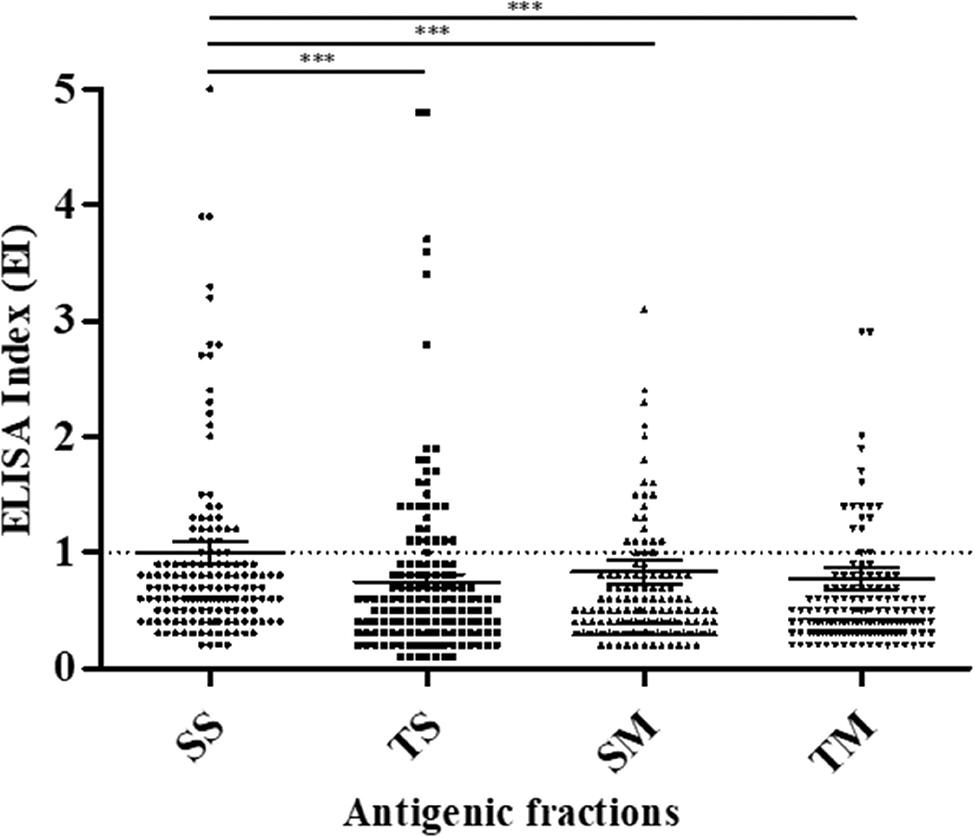OBJECTIVES:
Hyperinfection or disseminated strongyloidiasis has been frequently reported after transplants and is related to high mortality. This study aimed to screen for strongyloidiasis using serological diagnoses in transplant candidates.
METHODS:
An ELISA test was performed with filariform larvae of Strongyloides venezuelensis as a source of antigen.
RESULTS:
In the serum from transplant candidates, anti-Strongyloides IgG antibodies were detected in 35/150 (23.3%) samples by soluble fractions in phosphate buffered saline (PBS), 31/150 (20.7%) samples by soluble fractions in Tris-HCl, 27/150 (18.0%) samples by membrane fractions in PBS and 22/150 (14.7%) samples by membrane fractions in Tris-HCl.
CONCLUSIONS:
The present results suggest the ELISA test, ideally using soluble fractions of filariform larvae S. venezuelensis in PBS, as an additional strategy for the diagnosis of strongyloidiasis in transplant candidates.
Heterologous Antigen; Strongyloides Venezuelensis; ELISA Test; Transplant Candidates

